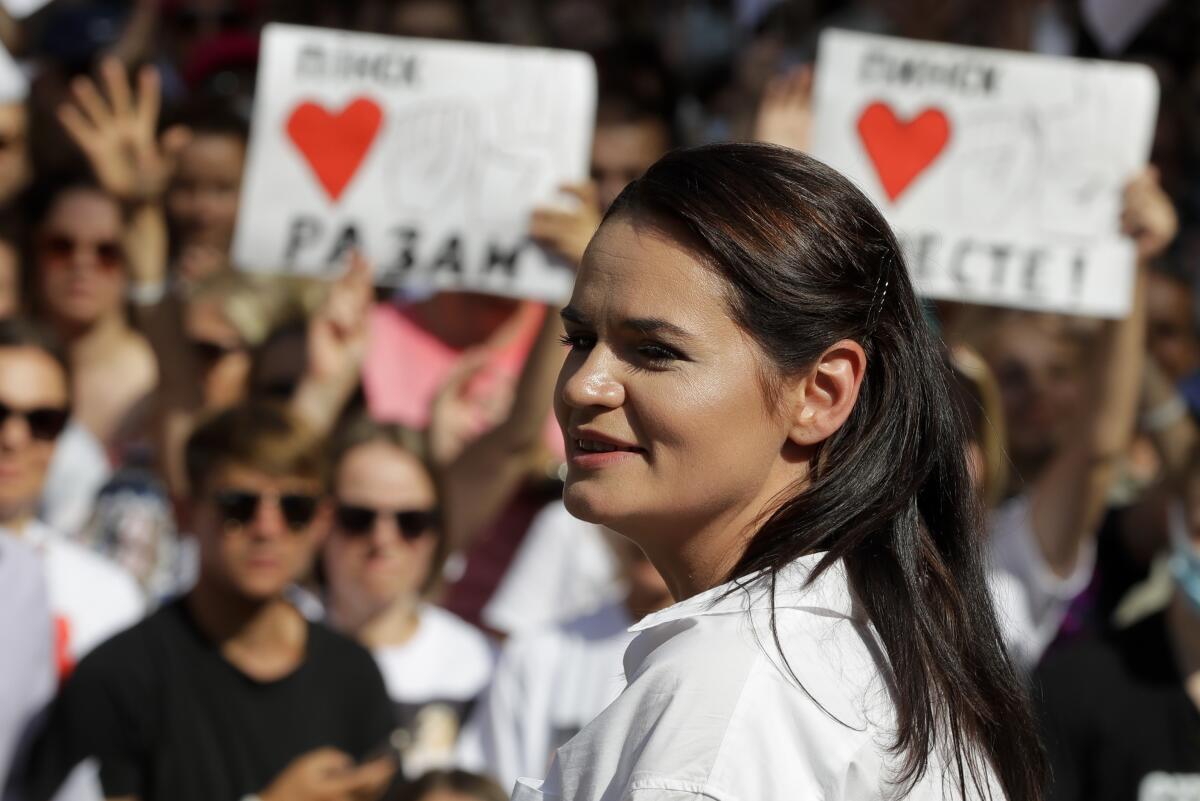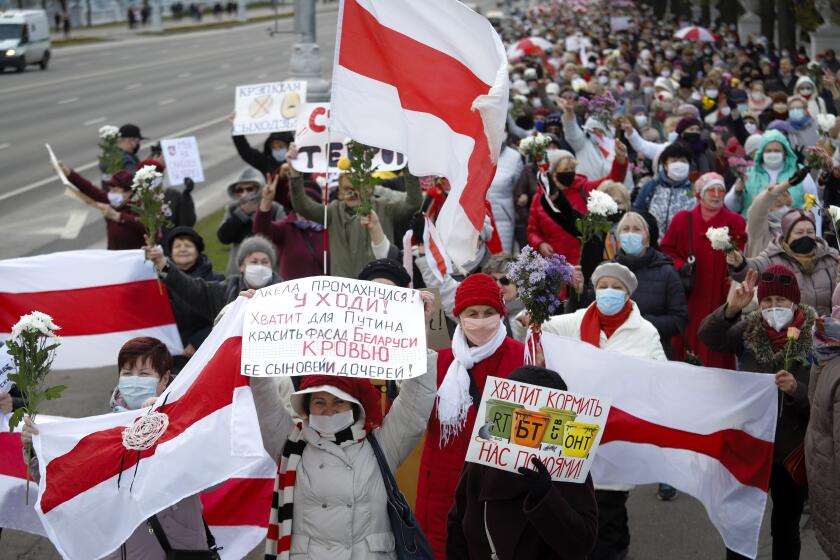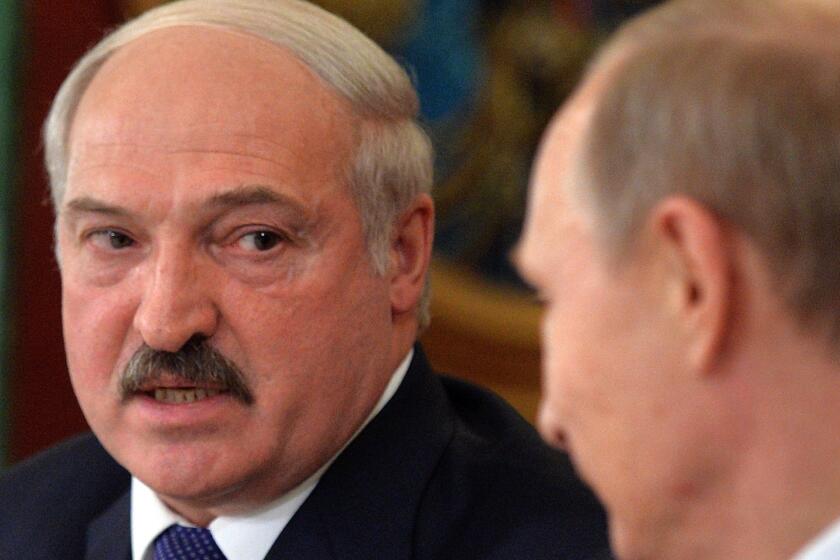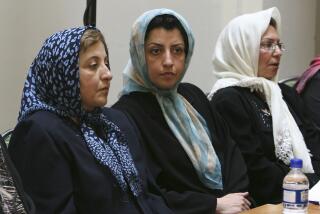EU awards its highest human rights prize to Belarus opposition

- Share via
BRUSSELS — The European Union awarded its top human rights prize Thursday to the opposition movement in Belarus and its leader, Sviatlana Tsikhanouskaya, for their challenge to President Alexander Lukashenko’s long, autocratic rule.
During a speech in the European Parliament, the chamber’s president, David Sassoli, praised the Sakharov Prize winners for their “courage, resilience and determination.”
“They have stood and still stay strong in the face of a much stronger adversary. But they have on their side something that brute force can never defeat, and this is the truth,” Sassoli said.
The 27-nation bloc agreed this month to impose sanctions on Belarusian officials suspected of electoral misconduct and a brutal security crackdown on protesters. The EU has warned that it is ready to sanction Lukashenko himself if he fails to enter into talks with the opposition and order an end to the repression launched after the country’s disputed presidential election.
In a series of recommendations adopted this week, EU lawmakers said sanctions need to include Lukashenko and called for new elections to be held under international supervision. MEPs also stated that “Tsikhanouskaya’s Coordination Council is the legitimate representative of the people.”
Lukashenko won his sixth term in office in a presidential election widely seen as rigged. Since the Aug. 9 election that handed Lukashenko 80% of the vote, mass protests have rocked the ex-Soviet bloc nation sandwiched between Poland and Russia.
Thousands of retirees rally in the Belarusian capital of Minsk to demand the resignation of the country’s longtime authoritarian president.
Tsikhanouskaya, Lukashenko’s main challenger, received 10% of the vote. She and her supporters refused to recognize the results, saying the outcome of the vote was manipulated.
A 38-year-old former English teacher with no previous political experience, Tsikhanouskaya joined the race after her husband, who aspired to run for president, was jailed. He remains in prison.
Tsikhanouskaya was forced to move to Lithuania under pressure from authorities.
Tsikhanouskaya shares the prize with several leading members of the opposition’s Coordination Council, which was created after the election in a bid to facilitate talks on a transition of power. They include Nobel literature laureate Svetlana Alexievich, musician Maryia Kalesnikava, political activists Volha Kavalkova and Veranika Tsapkala and prominent opposition politician Mikola Statkevich, who was recently jailed.
As EU rejects Belarus election result, the country’s beleaguered president looks to Moscow for backing.
The EU award, named after Soviet dissident Andrei Sakharov, was created in 1988 to honor individuals or groups who defend human rights and fundamental freedoms. Last year’s winner was economist Ilham Tohti for his work defending China’s Uighur minority.
Others on the shortlist for the award this year were activists defending the Guapinol river in Honduras and murdered environmental activist and indigenous leader Berta Caceres. Najeeb Michaeel, the archbishop of Mosul, in Iraq, also made the list for his role in evacuating Christians, Syriacs and Chaldeans to Iraqi Kurdistan and safeguarding historic manuscripts after Islamic State militants arrived in Mosul in 2014.
The prize will be presented in a ceremony in Strasbourg, France, on Dec. 16.
More to Read
Sign up for Essential California
The most important California stories and recommendations in your inbox every morning.
You may occasionally receive promotional content from the Los Angeles Times.














